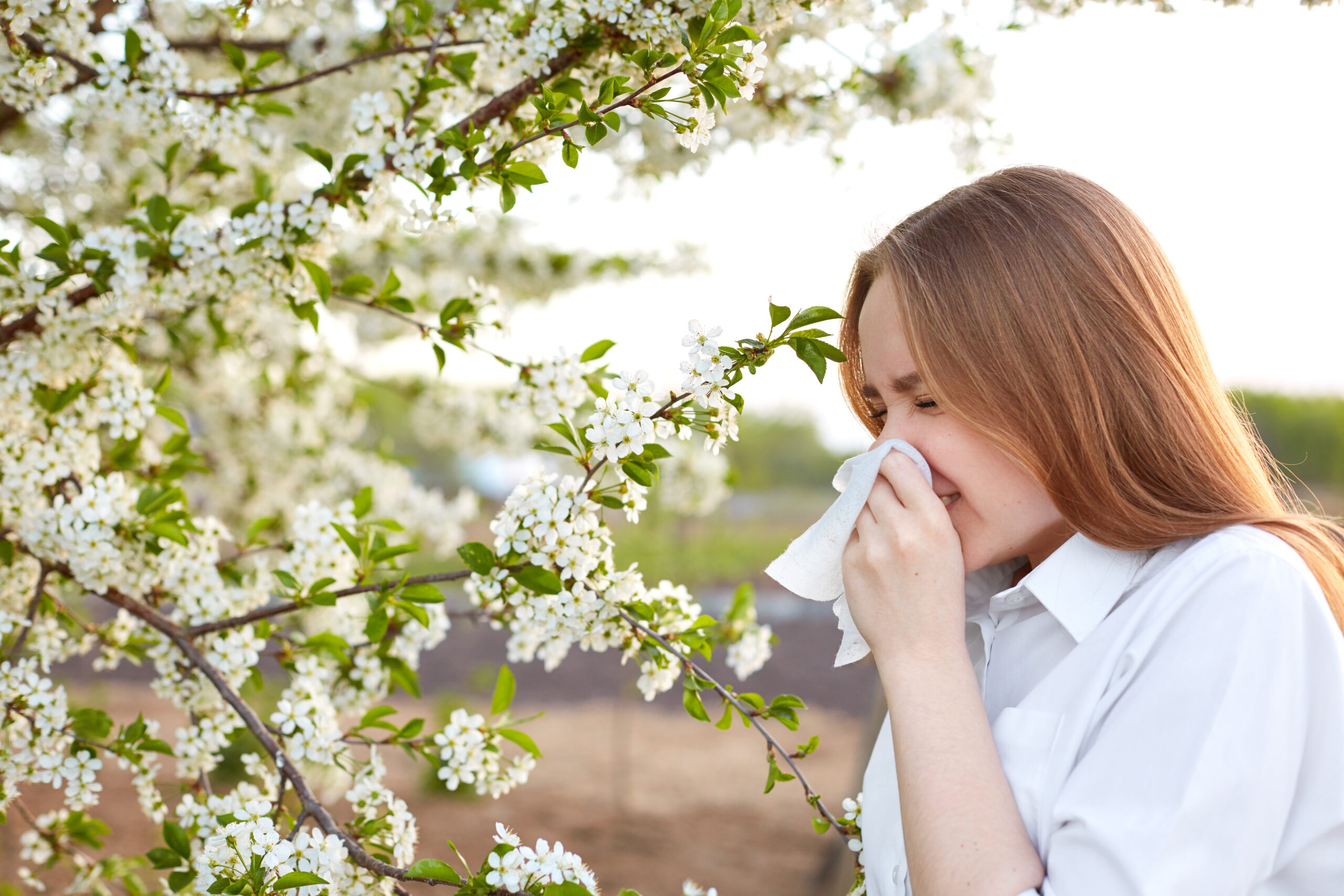
Springtime is a welcome sight of sunshine & blooming flowers, but unfortunately for some of us, this means the dreaded allergy season is here. So how do we keep from feeling miserable during such a beautiful time of year?
After a long winter, nothing feels better than spending time outdoors during spring.
Unless you have seasonal allergies.
Even though it’s beautiful outside, the flowering buds and blooming trees can make you dread being outdoors if you are one of the millions of people who suffer from sniffling, sneezing, watery eyes and other allergy symptoms. But who wants to stay indoors at this time of year?
“Springtime allergens are very hard to avoid unless you never go outdoors. Many patients will require medications to block allergy symptoms. Some medications can be used as needed for temporary relief, whereas people with more severe allergies require daily suppressive medications. Medications can work well but must continue to be used if symptoms are to be controlled. People with long term or severe allergies have the option of allergy injections if they do not respond well to medications or do not wish to take long term medications.”
This is prime time for seasonal allergies to flare up, as the weather starts to warm and trees begin to bud. Some of the most common symptoms include:
-
-
- Red, swollen or itchy eyes
- Runny and/or stuffy nose
- Itchy sinuses, throat, or ear canals
- Ear congestion
- Sneezing
- Cough
- Rashes
- Headache
- Shortness of breath (wheezing)
-
For milder allergy cases:
There are several over-the-counter medications targeted toward allergy relief known as antihistamines, which are available at your local pharmacy in various forms such as pills, chewable tablets, and even nasal spray formulations. Itchy watery eyes can be treated with prescription antihistamine eye drops. If you have not tried allergy medications in the past, discuss the appropriate dosing with your physician before administering any medications.
For more severe allergy cases:
A referral to an allergist may be beneficial in order to pinpoint the cause. Knowing what triggers your allergies is the key to preventing them, as avoidance is the best treatment. An allergist may recommend immunotherapy or allergy shots for severe allergy patients. Immunotherapy is an extended treatment that is somewhat slow to work, but over time helps 80% to 90% of recipients.
Aside from taking allergy medication to treat your symptoms, here are 5 tips to help you survive the spring allergy season:
-
-
- Stay indoors with your windows closed when the pollen count is high. You can track the pollen count through the news media, the National Allergy Bureau (www.aaaai.org) and weather sites such as www.weather.com.
- Wear sunglasses and a hat to keep pollen and other allergy triggers out of your eyes and hair.
- Change your clothes when you come in after being outside.
- Shower and wash your hair before going to bed to keep sheets and pillows free from allergens.
- Use a HEPA filter with your central heating and air conditioning system to help remove pollen and other allergens from indoor air.
-
If you are concerned about your symptoms or they worsen, contact your physician today to set up an evaluation!